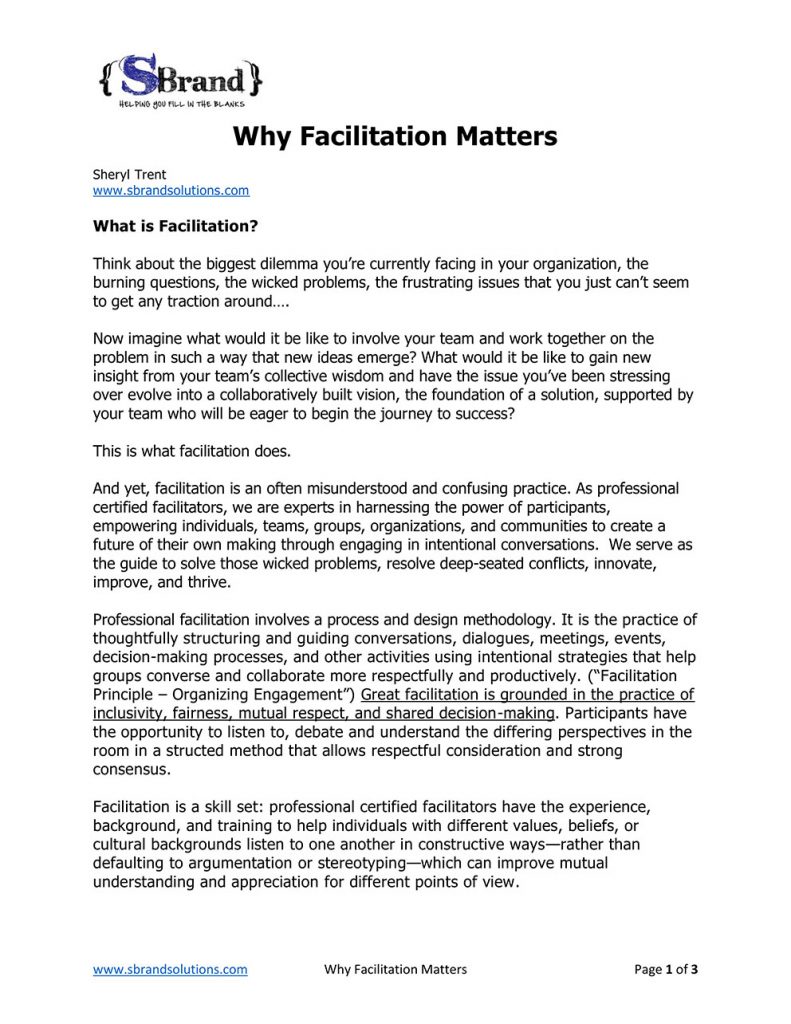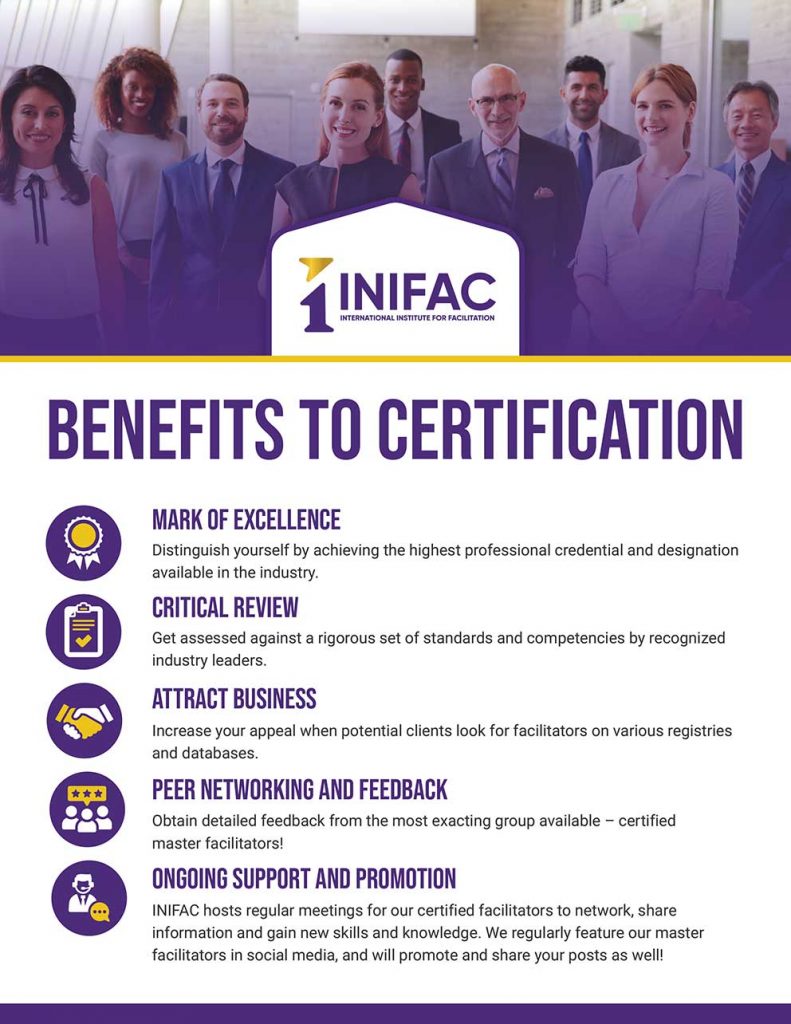It has been estimated that organizations lose up to $8,000 per day because of ineffective meetings.
Facilitators have skills in planning agendas, creating productive group environments, developing appropriate group processes, encouraging participation, and leading the group to reach its desired outcomes. Professional facilitators serve as guides, leaders and enablers. They play an important part in a well-run meeting by ensuring the meeting is productive, focused, inclusive and effective.
Why Become A Certified Facilitator with INIFAC?
Becoming a certified facilitator at any level with INIFAC will prove that you have the skills and knowledge to facilitate a necessary process or a learning experience, adding value to your employer or client in a way that solves problems and saves money. Facilitation of meetings can create stronger relationships, improve communications, build teamwork, and allow agreements to be crafted collaboratively.
INIFAC defines an outstanding facilitated session as a meeting in which the following conditions are met:
-
Participants understand what is to be done in the meeting and why.
- Participants are interested and engaged through out the activity.
- Participants stay focused on the issue.
- Participants interact openly and productively.
- Participants develop creative solutions that address the issue.
- Participants understand and are committed to the solution.
- Disagreements are resolved effectively and efficiently, with all parties feeling their views were heard and respectfully considered.
- Dysfunctional behavior is addressed effectively and efficiently, with all parties feeling the group’s norms were respected and violations of the norms appropriately addressed.
- At the completion of the session, participants understand the decisions made, and the follow-up actions to be taken, by whom and by when.
Facilitators are:
Process Facilitators
- Neutral to content, focused on; group process, group dynamics and leading group to reach its desired outcomes.
- Tasked to ensure the meeting is inclusive, productive, collaborative.
- Responsible for planning agendas, creating productive group environments, developing appropriate group processes, encouraging participation.
- Experts in both and facilitation process and group dynamics.
- Guides, instigators, partners and leaders.
- Tasked to ensure participants’ direction and decisions are on target.
- Responsible for; motivating learners, and creating positive learning environment.
- Facilitators serve as guides, leaders and enablers.
- They play an important part in a well-run meeting by ensuring the meeting is productive, focused, inclusive and effective.
Learning Facilitators
- Transfers content knowledge, current theories and/or research.
- Creates appropriate environment for learners.
- Helps learners learn at their own pace.
- Responsible for planning content, developing appropriate group strategies, and encouraging participation.
- Experts in both educational process and group dynamics.
- Can adapt to group needs.
- Structures personally relevant learning processes.
- Responsible for motivating learners, and creating positive learning environment.
This video explains the steps required to earn your Certified Master Facilitator® (CMF®) designation from INIFAC–the highest credential in the industry!


